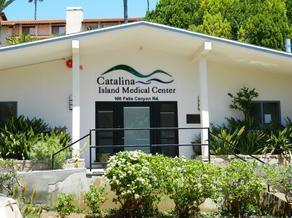The COVID pandemic has dramatically illustrated, like nothing else in our lifetime, the importance of taking personal action to preserve our health and safety. Each one of us has had to take responsibility for protecting the well-being of our family and community.
It’s a lesson that applies directly to the question of how we respond to the need for a new hospital on Catalina Island or whether we even have a hospital at all.
The existing Catalina Island Medical Center’s time is rapidly running out. That’s because state law mandates that the hospital must meet new earthquake safety standards intended to ensure that it could still operate in the event of a significant earthquake. State regulators have made it clear that there are no exemptions to this law. If no action is taken by 2030, the hospital will be out of compliance and would be forced to shut down. And because of its location and dated infrastructure, an expensive retrofit doesn’t add up. It doesn’t make sense financially or logistically.
Even without the deadline, Catalina Island Medical Center’s ability to meet the island’s needs has been outstripped by our growth in population and in the volume of visitors who come here to spend money and enjoy our hospitality.
The hospital opened back in 1960, when gas only cost 31¢ per gallon and the median home price was $11,900. The island’s population has tripled since that time and the growth in tourism means more than a million visitors come to the island every year.
Losing the hospital and its services is unthinkable, given the importance of quick healthcare access to residents and visitors alike. It would pose a threat to our personal health and the island’s continued economic prosperity and quality of life.
That’s why we think it’s vital that the island’s voters stand up collectively to preserve our healthcare services by supporting a recently qualified measure on November’s ballot that would help finance a new hospital.
The new medical center will be designed to better meet urgent needs by expanding the emergency department and providing a helipad for transporting patients. It will include a modern offering of telemedicine specialty services, mental health services and greater capacity for patient care in private settings. It will reduce the need to travel overtown by offering a full menu of specialized services that include chemotherapy, colonoscopies, infusion therapy for cancer cases and digital mammography.
Those services depend on expert staff. The new hospital will ensure it has the capacity to recruit and hire the best and most accomplished medical talent to serve the island.
We believe voters will see the benefit of approving a $2 round-trip transportation fee for those visiting Catalina that would be phased in starting in 2022 and would expire by 2062 at the latest, or earlier if the debt is paid off sooner. To account for the economic hardship residents have faced, the fee would be 50 cents in 2022, then $1 in 2023 and capped at $2 in 2024. Also included in the proposal is a $1 per day mooring fee for visiting ships that wish to anchor in Avalon Harbor. The remaining balance of the cost of construction would be paid for through private financing and the collection of donations.
This plan does not raise property taxes and is the most equitable way to spread the costs among those who benefit, including those who enjoy the beauty of Catalina and its hospitality.
We already have the site, 2.5 acres on Avalon Canyon Road donated by the Catalina Island Company. We have the vision. We have a fresh appreciation, given the pandemic, for protecting out health. Now we’re asking voters to help the island determine its own future by approving a project that is vital to our quality of life.
Chris Fox, MD, is the Chair of the Department of Emergency Medicine at University of California, Irvine, and has served patients at Catalina Island Medical Center since May 2016.










